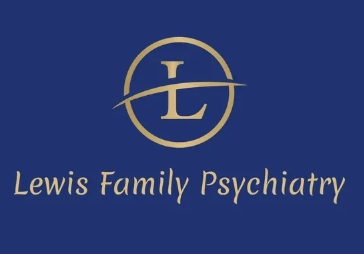Postpartum Depression: The Mental Health Issue No One’s Talking About
Postpartum depression affects about one in eight new mothers but doesn't always get the attention it deserves. Read on to learn the symptoms, including how to distinguish it from the baby blues, and how we can help.
Many women expect to feel happy and excited — and perhaps tired and overwhelmed — after their baby's birth. What they may not anticipate is suffering from postpartum depression. However, about one in eight women experience this disorder in the months after their baby is born.
With experienced psychiatric nurse practitioners and our cutting-edge telemedicine practice conducted entirely online throughout the state of Florida, Lewis Family Psychiatry provides easy and convenient access to individualized care for postpartum depression and other mental, emotional, and behavioral challenges.
Baby blues vs. postpartum depression
Up to 85 percent of new mothers may suffer from the baby blues, a mild form of depression often triggered by hormonal changes after giving birth.
It typically begins one to four days following delivery and improves on its own after two weeks. Symptoms may include sadness, crying, restlessness, and anxiety.
Postpartum depression, on the other hand, is more serious and lasts longer. It can begin before giving birth or any time during your baby's first year, but most often, it strikes 1-3 weeks following delivery.
Symptoms of postpartum depression
Postpartum depression symptoms are more intense than the baby blues and can last for months or more. They can also interfere with everyday life and caring for your baby.
Symptoms can include:
Emotional changes
Suffering from a depressed mood, mood swings, irritability, or anger can be some signs of postpartum depression. Many women cry too much and feel a sense of hopelessness, worthlessness, or guilt.
Physical symptoms
Postpartum depression can also cause feelings of restlessness or, conversely, deep fatigue, changes in appetite ranging from eating too much to eating too little, and sleep problems like insomnia or sleeping too many hours.
Mental effects
Postpartum depression can lead to trouble concentrating and difficulty thinking clearly or making decisions. Some women also suffer from anxiety or panic attacks as well as the belief they're not a good mother.
Social withdrawal
Withdrawing from family and friends, struggling to bond with your baby, and experiencing a decreased interest and enjoyment in activities are additional signs.
Big red flags
Recurring thoughts of self-harm or hurting your baby, as well as thinking about suicide or death, are significant red flags and require immediate help.
If you or a loved one is struggling with postpartum depression, getting help as soon as possible is important. We provide treatment that’s customized to each woman and often includes medication and psychiatric therapy.


